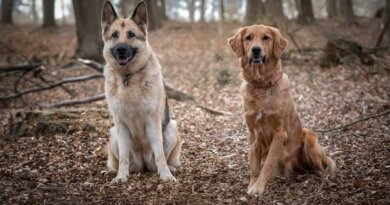Five Reasons for a Dog’s Destructive Behavior
Dogs are normally destructive for one or more of five reasons, none of which involve spite, malice, or “getting even.” The five reasons are:
- Stress: Simply put, physical activity relieves stress. A stressed human may pace the floor, go jogging, chew her fingernails, or tap a pencil on the table or a foot on the floor. Chewing, digging, and other destructive behaviors are stress relievers for dogs. Stress-related destructive behavior can be relatively mild, or turn into full-blown separation anxiety.
- Teething: A young dog can be in mild to somewhat severe discomfort when his new teeth are pushing through the gums, and until they are fully emerged at 18-24 months. Chewing helps relieve teething pain, which is one of the reasons puppies and adolescent dogs are such dedicated chewers.
- Boredom: Busy dogs need something to do. The herding breeds especially can be workaholics; if you don’t give them a job, they’ll create one, and it may not be one that meets with your approval.
- High jinks: Dogs explore the world with their mouths, and young dogs are particularly driven to explore the world around them, as so much of it is new and exciting. Does this taste good? Does this feel good? Is this fun to play with? In addition, baby dogs and juveniles tend to have high energy levels, and sometimes go on a rampage in a burst of feel-good energy, similar to a teenager who trashes the house with a beer party when his parents unwisely leave him home alone for a weekend.
- Habit: If a dog is poorly managed and allowed to repeatedly engage in destructive behavior during his formative months (the first one to two years) he may develop destructive behavior habits that can continue throughout his life. In contrast, if he is well managed for his first two years, he is unlikely to pick up destructive behaviors later in life – unless his environment changes drastically and causes him undue stress.
For more information on managing dog demolition, purchase Destructive Chewing, an ebook from Whole Dog Journal.




